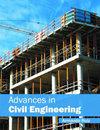基于全连接神经网络的 PyTorch 在混凝土抗压强度预测中的应用
IF 1.6
4区 工程技术
Q3 CONSTRUCTION & BUILDING TECHNOLOGY
引用次数: 0
摘要
混凝土抗压强度是设计混凝土结构和预测其耐久性的一个重要参数。因此,预测混凝土的抗压强度意义重大。本研究使用 PyTorch 框架开发了一个全连接神经网络模型来预测混凝土的抗压强度,并与其他六个机器学习模型进行了比较。这些模型包括多元线性回归、K-近邻回归、支持向量机、决策树、随机森林、轻梯度提升机和人工神经网络。该模型使用 4253 个数据进行训练,其中包含七个输入参数,包括水泥 (C)、粉煤灰 (F)、矿粉 (K)、细骨料 (FA)、粗骨料 (CA)、减水剂外加剂 (WRA) 和水 (W)。数据集中的 3 621 个数据经过数据清理后用于训练预测模型,632 个数据用于验证模型。结果表明,基于 PyTorch 框架的全连接神经网络模型可以较准确地预测混凝土的抗压强度。因此,它是一种可靠、实用的人工网络模型优化方法。因此,它在实践中具有重要的应用价值。可以提前预测混凝土的强度,提高工程效率,降低成本。此外,通过调整配合比,结合不同环境、不同行业的强度预测结果,保证施工质量。本文章由计算机程序翻译,如有差异,请以英文原文为准。
Application of Fully Connected Neural Network-Based PyTorch in Concrete Compressive Strength Prediction
Compressive strength of concrete is an important parameter in the design of concrete structures and the prediction of their durability. Therefore, it is of great significance to predict the compressive strength of concrete. In this study, a fully connected neural network model is developed using the PyTorch framework to predict the compressive strength of concrete and compared with six other machine learning models. These models are multiple linear regression, K-nearest neighbor regression, support vector machine, decision tree, random forest, light gradient boosting machine, and artificial neural network. The model is trained using 4,253 data with seven input parameters, including cement (C), fly ash (F), mineral powder (K), fine aggregate (FA), coarse aggregate (CA), water reducer admixture (WRA), and water (W). Three thousand six hundred twenty-one data in the datasets are used to train the prediction model after data cleaning, and 632 data are used to validate the model. The results show that the fully connected neural network model based on PyTorch frame can predict the compressive strength of concrete with higher accuracy. Therefore, it is a reliable and useful method to optimize the artificial network model. So, it has important application value in practice. The strength of concrete can be predicted in advance, making the project more efficient and reducing costs. Besides, by adjusting the mix ratio, combining the strength prediction results in different environments and industries to ensure the quality of construction.
求助全文
通过发布文献求助,成功后即可免费获取论文全文。
去求助
来源期刊

Advances in Civil Engineering
Engineering-Civil and Structural Engineering
CiteScore
4.00
自引率
5.60%
发文量
612
审稿时长
15 weeks
期刊介绍:
Advances in Civil Engineering publishes papers in all areas of civil engineering. The journal welcomes submissions across a range of disciplines, and publishes both theoretical and practical studies. Contributions from academia and from industry are equally encouraged.
Subject areas include (but are by no means limited to):
-Structural mechanics and engineering-
Structural design and construction management-
Structural analysis and computational mechanics-
Construction technology and implementation-
Construction materials design and engineering-
Highway and transport engineering-
Bridge and tunnel engineering-
Municipal and urban engineering-
Coastal, harbour and offshore engineering--
Geotechnical and earthquake engineering
Engineering for water, waste, energy, and environmental applications-
Hydraulic engineering and fluid mechanics-
Surveying, monitoring, and control systems in construction-
Health and safety in a civil engineering setting.
Advances in Civil Engineering also publishes focused review articles that examine the state of the art, identify emerging trends, and suggest future directions for developing fields.
 求助内容:
求助内容: 应助结果提醒方式:
应助结果提醒方式:


